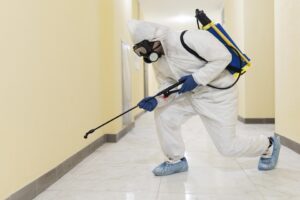As integral components of a home’s sanitation infrastructure, septic systems are essential in areas outside the reach of municipal sewage lines. These systems allow for the safe processing and disposal of household waste and directly influence the health of your home environment. Understanding the mechanics and upkeep of your septic system is the first step in responsible home ownership. In regions like Central Florida, where conditions may vary, it’s essential to have a reliable process for septic tank draining, as a preventive approach to regular maintenance and overall home care.
Table of Contents
How Septic Systems Work
At its core, a septic system is a self-contained wastewater treatment facility. Your septic tank is where the heavy solids can settle to the bottom, forming sludge, while the lighter particles float to the surface, creating scum. Scheduling regular septic tank draining Orlando, FL, is crucial for maintaining system efficiency. Natural bacterial action helps to decompose these materials, and the remaining liquid, known as effluent, flows into the drain field. There, it undergoes further natural treatment by percolating through the soil, which acts as a biological filter. This ingenious use of nature’s processes helps treat wastewater on-site, provided the system is correctly sized for your home and regularly maintained.
Regular Maintenance For Longevity
Maintenance is crucial for longevity, much like regular oil changes for your vehicle. Septic systems should typically undergo a professional inspection every three years, with pumping recommended between three to five years, depending on household size and usage. Adequately scheduled maintenance prevents unexpected breakdowns and ensures the system’s effective operation over its intended lifespan, ultimately protecting your home’s value and the surrounding environment.
Eco-Friendly Practices For Septic System Care
In our environmentally conscious world, adopting eco-friendly practices for septic system care is more important than ever. Simple changes in household habits, such as conserving water and reducing the use of harsh chemicals, not only prolong the life of your septic system but also contribute to a more significant effort in protecting the environment. Natural cleaners and biodegradable products are kinder to the helpful bacteria in your septic tank and are crucial components in fostering a healthier ecosystem around your home.
When To Call The Professionals
While preventative measures are crucial, there are times when calling a professional is necessary. If regular upkeep has slipped or you notice any of the previously mentioned red flags, getting an expert’s opinion is the next best step. Professional septic services bring the necessary expertise to solve issues, conduct essential maintenance, and provide homeowners with peace of mind.
The Impact Of Septic Systems On The Environment
Septic systems directly and indirectly affect the environment, influencing local ecosystems and beyond. A failing septic system can release pathogens, nutrients, and chemicals into the groundwater, affecting water sources and wildlife habitats. Thus, properly functioning septic systems are not just a homeowner’s concern but an environmental imperative. This understanding of how septic systems interact with the environment is not just academic; it is essential knowledge for anyone interested in ecological conservation. By managing these systems responsibly, we protect our health and our planet’s diverse ecosystems.
Legal Considerations & Compliance
Adhering to local regulations regarding septic systems is about compliance and contributing to the community’s public health standards. Regulations vary by location and can influence system design, operation, and maintenance requirements. Being well-informed about these regulations ensures that your system functions correctly and aligns with legal standards, preventing penalties while safeguarding public health.
Future Of Septic Systems
Septic system technology advances as we look to the future, promising more sustainable and efficient options. Whether through improved materials, design, or treatment processes, these innovations have the potential to reduce environmental impact and improve system performance. Encouraging developments are on the horizon, mirroring a broader societal shift towards sustainable living practices. Understanding your septic system is non-negotiable for effective home maintenance and environmental protection. It’s a topic that warrants attention and care, paralleling our broader values regarding sustainability and responsibility. Please refer to the Environmental Protection Agency for additional resources on septic systems and why maintenance is essential.




